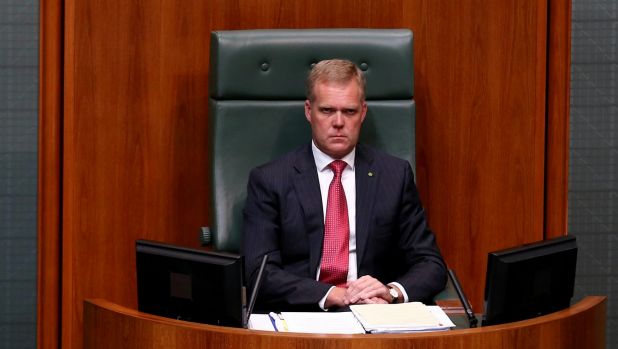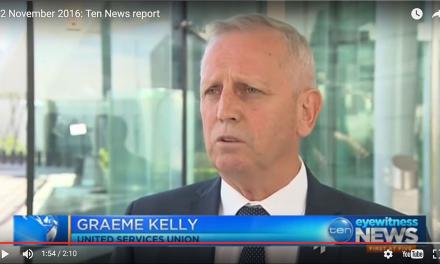Security officers have blocked MPs’ staff from campaigning for improved pay inside Parliament House, amid growing unrest in minister’s offices and the threat of a proposed enterprise bargaining deal being rejected.
A group of concerned Coalition government staffers are lobbying their colleagues to vote against the Department of Finance’s 2 per cent pay increase offer over three years, instead calling for 2.5 per cent and a $500 sign-on bonus, in lieu of back pay.
Citing a two-year wage freeze, Coalition staffers said it was unreasonable they were being asked to work an extra 30 minutes each week – or a total of 38 hours – when many worked much longer hours already.
Voting on the proposed deal closes on Friday afternoon.
Speaker Tony Smith and Senate president Stephen Parry blocked the group from handing out flyers at Parliament’s staff cafeteria, with four security officers escorting female staffers away from the area on Wednesday.
Others were told to stop handing out flyers at the House of Representatives entrance this week.
The group has called for improved allowances, and greater pay increments for all electorate officers, MPs’ personal staff and senior staff classifications
Predicting a “no” vote would cause embarrassment to Prime Minister Malcolm Turnbull and Employment Minister Michaelia Cash, staffers claimed the Coalition’s own values backed their position.
“While it is a huge and rare privilege to be given an opportunity to work in the Parliament of Australia, and our pay may seem generous by community standards, the reality is that each of us sacrifices a lot to do the jobs we do, and our workloads have increased to near-unsustainable levels in some cases without an increase in staffing levels,” an email obtained by Fairfax Media said.
“After all, the Coalition ethos is to reward hard work and enterprise – we can all agree that the deal as it stands fails monumentally in this regard.
“You are literally the glue that keeps the Coalition parliamentary team together, and ensures we can deliver the good government the Australian people deserve.”
Salaries for MP’s principal advisers, chiefs of staff and senior advisers range from $125,385 to $254,079, while personal employees other than senior staff are paid between $48,017 and $133,218.
United Services Union organiser Rudi Oppitz said it was the first time enterprise bargaining campaigners had been stopped or interfered with at Parliament.
“I think it’s a reasonable situation for those people covered by the agreement to be campaigning for their view and disseminating information to those people who will be affected,” he said.
“The union understands there is a considerable amount of unrest, exacerbated when people see chiefs of staff being paid $600,000 and individuals having their grades increase before this voting process takes place while others are left behind.”
Mr Oppitz said political staffers were often experienced political operatives, used to organising others, and they should be allowed to hand out flyers at Parliament.
Tom McIlroy



